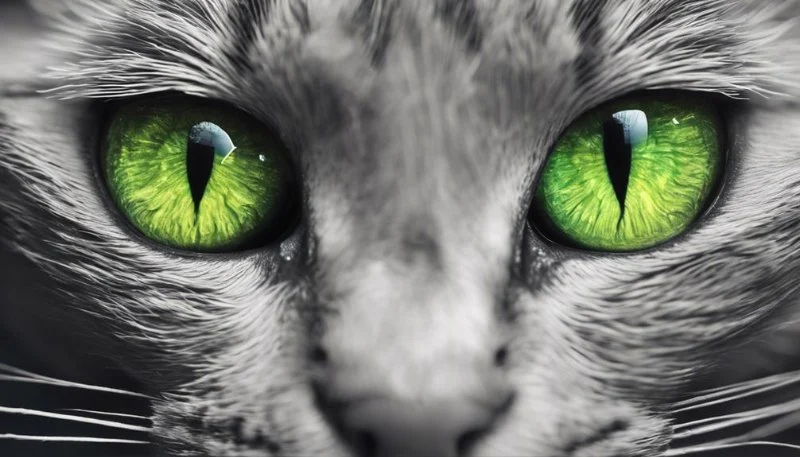
The Science of a Kitten's Night Vision
- Understanding Night Vision in Kittens
- Why Kittens Have Exceptional Night Vision
- The Anatomy Behind a Kitten's Night Vision
- Comparing Kitten Vision to Other Animals
- How to Care for Your Kitten's Eyes
- Why Omnia Pet Is Your Go-To For Kitten Care
Understanding Night Vision in Kittens
Kittens are born with an extraordinary ability to see in low-light conditions. While their vision may not be fully developed at birth, their eyes quickly adapt, making them excellent nocturnal hunters. Understanding the science behind their night vision can give pet owners deeper insights into their feline friends’ behavior and needs.
Why Kittens Have Exceptional Night Vision
Kittens, like many other predators, rely on their night vision to hunt in the wild. Their eyes are specifically designed to maximize light absorption, allowing them to see clearly even in dim light. This is crucial for their survival, as many small animals are active at night.
Unlike humans, cats have a higher number of rod cells in their eyes, which are responsible for low-light vision. This gives them the ability to see in nearly complete darkness, making them adept hunters in the twilight hours.

Animal Hospital of Nashua
NashuaHillsborough CountyNew Hampshire
168 Main Dunstable Rd, Nashua, NH 03060, USA
The Anatomy Behind a Kitten's Night Vision
A kitten's eye anatomy plays a major role in its ability to see in the dark. One key component is the "tapetum lucidum," a layer of tissue behind the retina that reflects light back into the eye, improving vision in low-light conditions. This layer is what gives their eyes that reflective glow when light hits them in the dark.
In addition to the tapetum lucidum, kittens have large, round pupils that can open wide, allowing more light to enter the eye. Their eyes also have a higher proportion of rod cells, which are sensitive to light and motion, helping them see in low-light environments.
Comparing Kitten Vision to Other Animals
While kittens' night vision is impressive, they are not the only animals with exceptional low-light vision. Many nocturnal animals, such as owls, bats, and even some reptiles, have similarly adapted vision to help them navigate in the dark. However, kittens’ ability to see well in the dark is often better than humans and even other pets like dogs, which rely more on their sense of smell and hearing.
In comparison to humans, who have more cone cells responsible for color vision, kittens have more rod cells, allowing them to excel in dim light but see less color. Their vision is adapted for hunting and survival rather than color differentiation.
How to Care for Your Kitten's Eyes
Although kittens are naturally gifted with great night vision, it’s essential to care for their eyes properly to maintain their health. Regular vet checkups are crucial, as they ensure your kitten’s vision remains sharp and that any potential eye issues, like infections or injuries, are addressed early on.
Additionally, keeping your kitten indoors during the night or in safe environments can help protect their eyes from injury, especially when they are still learning to navigate the world around them.
Why Omnia Pet Is Your Go-To For Kitten Care
When it comes to ensuring your kitten’s health and well-being, Omnia Pet provides a wide range of products and expert advice. From high-quality pet food to toys that stimulate your kitten’s instincts, Omnia Pet is your go-to destination for everything your kitten needs. We understand the importance of caring for your kitten’s eyes and overall health, which is why we offer products designed to support their natural abilities.




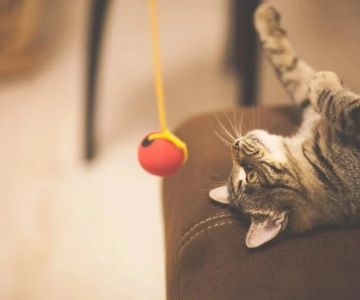


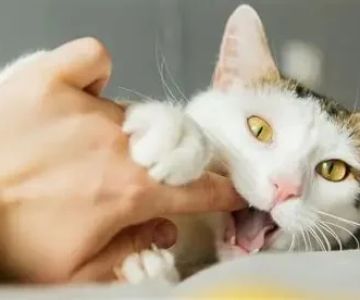
 Hollywood Feed4.0 (184 reviews)
Hollywood Feed4.0 (184 reviews) Brew Biscuits5.0 (2 reviews)
Brew Biscuits5.0 (2 reviews) All Friends Animal Hospital4.0 (446 reviews)
All Friends Animal Hospital4.0 (446 reviews) Kittylandkittens LLC0.0 (0 reviews)
Kittylandkittens LLC0.0 (0 reviews) Village Animal Clinic4.0 (212 reviews)
Village Animal Clinic4.0 (212 reviews) Rift Lake Aquatics4.0 (165 reviews)
Rift Lake Aquatics4.0 (165 reviews) Understanding Pet Insurance: What Does It Actually Cover?
Understanding Pet Insurance: What Does It Actually Cover?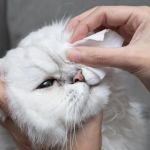 How to Keep Your Kitten's Eyes Clean and Free of Discharge
How to Keep Your Kitten's Eyes Clean and Free of Discharge The Truth About Heartworm Disease: Prevention is Cheaper Than Cure
The Truth About Heartworm Disease: Prevention is Cheaper Than Cure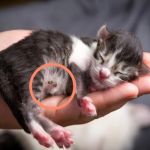 Why Is My Kitten's Belly Button Showing? | Omnia Pet
Why Is My Kitten's Belly Button Showing? | Omnia Pet Why Does My Cat Bite Me Gently? Love Bites Explained
Why Does My Cat Bite Me Gently? Love Bites Explained How to Stop Your Kitten from Getting into Cabinets
How to Stop Your Kitten from Getting into Cabinets